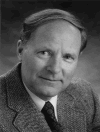There is now general consensus that atrial fibrillation is an epidemic. While huge and costly efforts are being made to find new drugs to control it, and new ablation and surgical techniques to eliminate it,
I am not aware of any serious effort being expended to finding out what is causing the epidemic. To a solution-oriented and practical-minded chemical engineer like myself, this makes no sense at all,
but presumably it makes perfect sense to governments, the medical fraternity, and the pharmaceutical industry. Nevertheless, in this issue we report on an effort made by researchers at the Mayo Clinic to
determine risk factors for developing atrial fibrillation. By comparing the status of 12 variables vs. incidence of AF in a group of 14,546 individuals between the ages of 45 and 64 years,
the researchers were able to develop a score for predicting the risk of developing AF over the next 10 years. The major risk factors were:
| Age 60-64 years |
8 points |
| Early coronary artery disease (age 45 to 50 years |
5 points |
| Age 55-60 years |
4 points |
| Height of 173 cm (5 ft 8 in.) or greater |
4 points |
| Left ventricular hypertrophy and white race |
4 points |
| Early diabetes (between 45 and 55 years) |
4 points |
Surprisingly, the presence of known AF initiators such as alcohol abuse, recreational drug use, digoxin use, thyroid disorder, hypoglycemia, pheochromocytoma, hyperaldosteronism (Conn’s syndrome),
electrolyte imbalances, autonomic nervous system imbalances, and inherited AF were not included in the risk score. In any case, it would appear that the Mayo study once again puts “paid” to the assumption
that AF is associated with old age when the most important risk factor is age between 60 and 64 years.
Also in this issue, we report that common antiarrhythmic drugs are safe if properly prescribed, we review a new evaluation of stroke prediction scores, a comparison of manual, robotic and cryo PVI procedures,
and a Japanese report on what makes afibbers different.
Wishing you good health and lots of NSR,
Hans

|

















